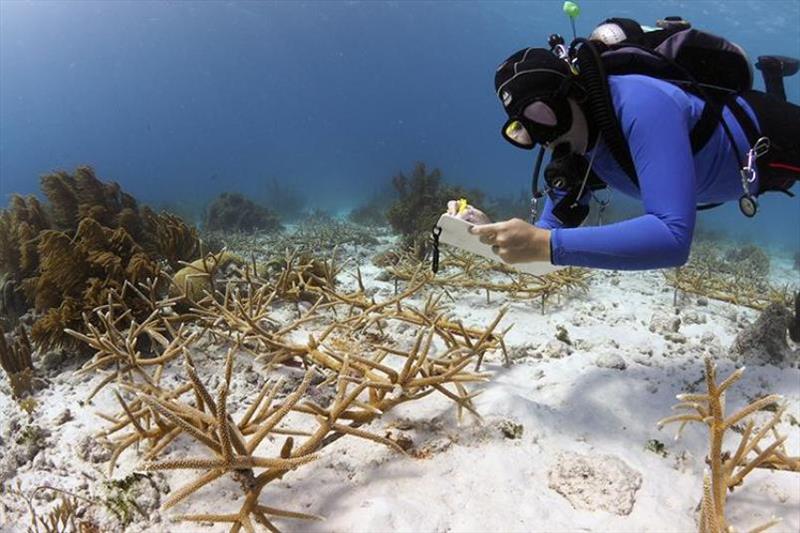
New coral reef monitoring guide will help measure restoration progress
by NOAA Fisheries 31 Oct 2020 16:17 UTC

A diver monitoring restored corals © Reef Renewal Bonaire
NOAA and partners have released a new comprehensive guide that outlines best practices for monitoring coral restoration efforts and measuring progress toward meeting restoration goals.
Practitioners, managers, and scientists worldwide can use this guide to evaluate the success of coral restoration efforts.
NOAA has been a leader in coral research, conservation, and restoration for decades. Coral restoration efforts have continued to scale up in size and number in recent years. This has resulted in a growing need to define what effective restoration looks like and how to evaluate progress towards success.
The newly-released coral reef restoration monitoring guide provides a scalable, scientific approach to monitoring and evaluating coral restoration work. The document was developed by the Monitoring Working Group of the Coral Restoration Consortium with NOAA support. It outlines standardized scientific guidance and best practices for monitoring restored coral reefs and measuring progress toward success.
Coral restoration practitioners can use the monitoring guide to:
- Measure the success of their restoration goals or objectives
- Compare metrics between projects, programs, and regions
- Increase the efficiency of restoration and data collection
- Make informed decisions about restoration efforts
Coral reefs are extremely valuable habitats, contributing
more than $3 billion a year domestically to the economy. Hundreds of millions of people depend on coral reefs for food, cultural practices, flood protection, and more. Unfortunately, corals are rapidly declining around the world due to warming water temperatures, ocean acidification, pollution, invasive species, and impacts from ship groundings and storms. Restoration plays a critical role in preserving these valuable ecosystems.
The Coral Restoration Consortium was formed in 2017 to foster collaboration among coral restoration scientists, practitioners, and managers. This community of practice works to advance methods for coral reef restoration in order to keep pace with rapidly-changing ocean, climate, and environmental conditions. NOAA staff serve as members of the Consortium's steering committee and Monitoring Working Group.